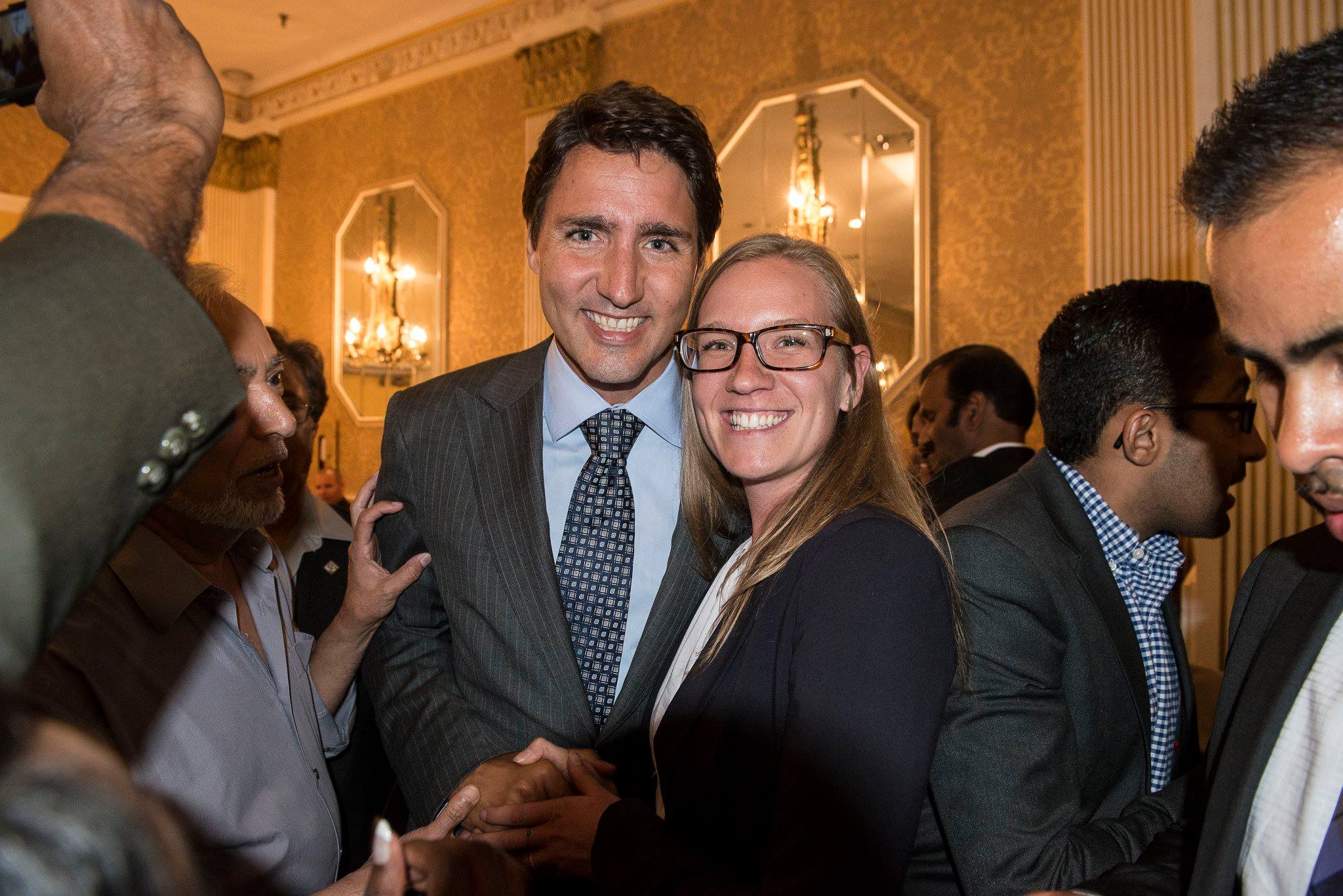Karl Nerenberg is your reporter on the Hill. Please consider supporting his work with a monthly donation Support Karl on Patreon today for as little as $1 per month!
The prime minister has removed a very young and inexperienced minister from the Democratic Institutions portfolio and replaced her with another who is even younger and less experienced.
What does that choice portend?
Maryam Monsef was the previous minister, and is now responsible for Status of Women. Karina Gould, the 29-year-old MP for Burlington, west of Toronto, now inherits the delicate and difficult electoral reform mandate.
Gould’s official biography dwells on her activities as a university undergraduate (at McGill) to a greater extent than do most MP bios. It was only in 2005, after all, toward the end of the last Liberal government, Paul Martin’s, that Gould graduated from high school. The bio also relates that the new minister has an MA from Oxford, in international development, and worked, briefly, for the Mexican Trade Commission in Canada.
In a CBC interview, Gould said she wrote her undergraduate political science thesis on Canada’s electoral system. That seems to sum up her entire experience with this complex and difficult issue prior to entering politics.
Those who think replacing the first-past-the-post system is a good, even vitally necessary, idea might be asking why the prime minister didn’t entrust Stéphane Dion with the job.
It could have been an appropriate swan song for the fearless and combative political scientist who entered politics 20 years ago, as a constitutional expert and unapologetic opponent of separatism.
While many might think Dion’s grit, commitment to principle and determination were a bit too intense for the role of diplomat-in-chief, those are exactly the qualities needed to push the reform process to completion.
An MP who seems to have fire in her belly for reform
On the face of it, it is hard to understand why Prime Minister Trudeau chose, instead, and for the second time, to entrust the fulfillment of one of his signature election pledges to a novice politician.
Here is an optimistic view.
Trudeau knows well that a great many in his caucus are at best lukewarm, and, in many cases, hostile, toward the idea of reform.
Perhaps, in selecting Gould, the prime minister is convinced he has found a hardworking MP, who proved herself over the past year as a parliamentary secretary, and who, more important, is personally committed to changing the voting system.
In naming Gould to replace Monsef, we have the right to hope that Trudeau is, in fact, signaling he is determined reform will happen before the next election, as he promised.
The fact that in one of her few speeches in the House since becoming an MP Gould spoke to the issue of changing the voting system should give electoral reformers some hope.
The MP for Burlington made that speech last June, during debate on NDP MP Nathan Cullen’s motion to establish a special House committee on electoral reform.
Cullen’s proposal differed from the government’s plan, which was a committee on which government members would have more than half the seats.
Cullen’s motion provided that opposition, and not government, members would have the majority. That motion ultimately passed. It was a notable case of the prime minister graciously backing away from his original position.
We know speeches in these debates are, to a large extent, concocted by party apparatchiks.
Still, those who hope Karina Gould will take the reform bull by the horns and get it through Parliament might be encouraged by her words in the House on June 2 of last year.
After speaking about how the franchise was only granted to women in 1919, to the Inuit during the 1920s and to First Nations people in 1960 — and how rules that prohibited the homeless and destitute from voting were only removed over time — Gould turned to the current exercise:
“I strongly believe that stepping away from the first past the post system and embracing a new system that can reflect these values…would be another milestone in the history of Canada’s elections. I suspect future generations will note..this is yet another example of how our electoral system has evolved to further increase the inclusion of all peoples, to better reflect the will of voters and the representation of the House, and to work toward a system that produces a House that looks more and more like the faces of Canadians.”
Strong words.
Now, the young MP has the ball. She has a right to expect that she will get stronger and more consistent support from the Prime Minister’s Office than did her predecessor.
Karl Nerenberg is your reporter on the Hill. Please consider supporting his work with a monthly donation Support Karl on Patreon today for as little as $1 per month!
Image: Facebook/Karina Gould




